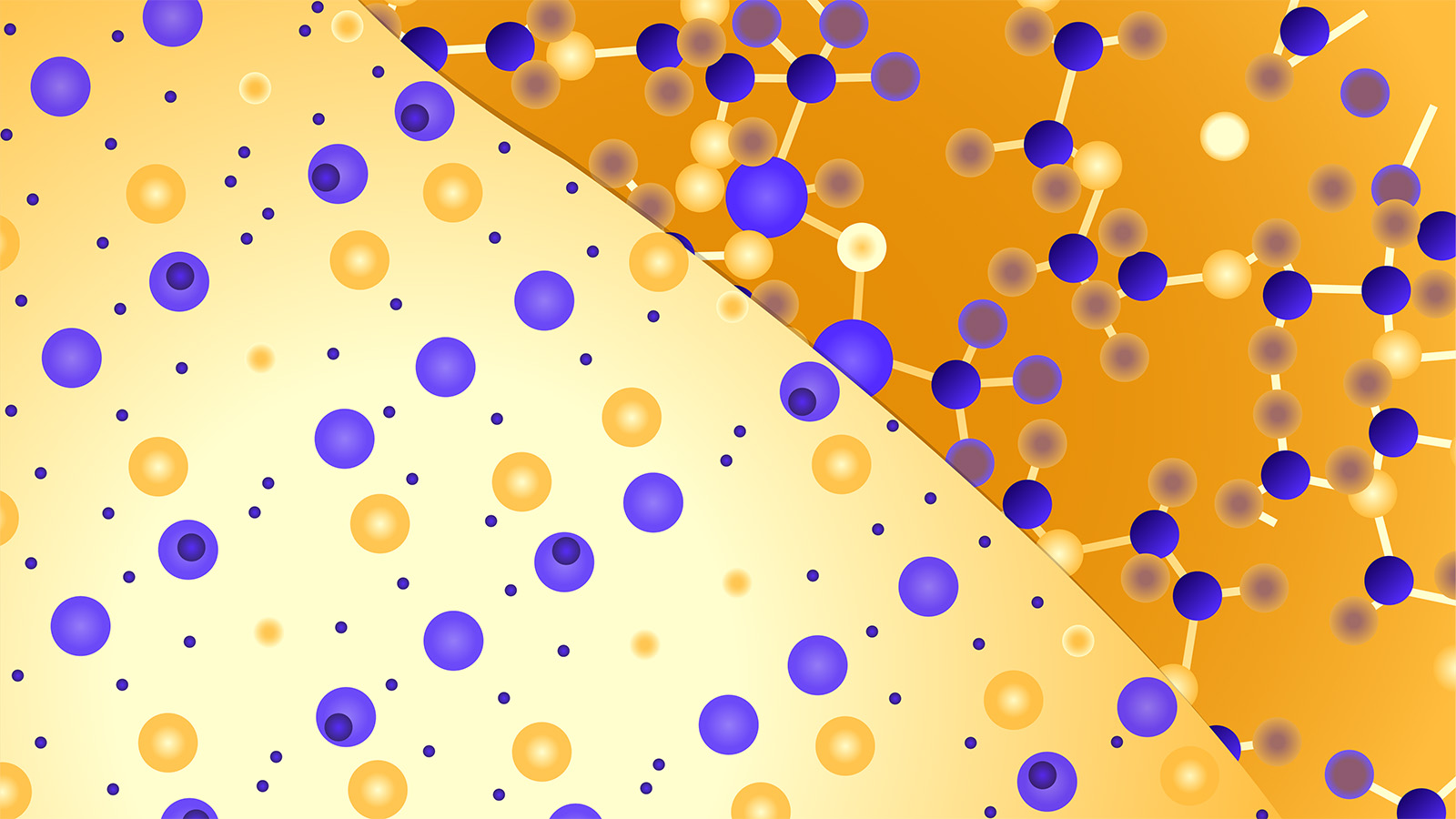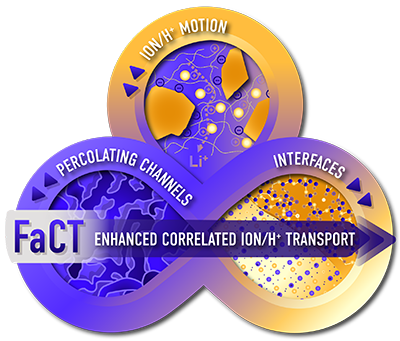
Fast and Cooperative Ion Transport in Polymer-Based Electrolytes (FaCT)
Energy Frontier Research Centers

Mission
To understand and control fast, correlated ion and proton transport at multiple length and time scales in polymer-based electrolytes to overcome the current limitations of energy storage and conversion technologies
Vision
The Center for Fast and Cooperative Ion Transport in Polymer-Based Electrolytes, or FaCT, was established as a DOE Energy Frontier Research Center in 2022. FaCT brings together a cross-cutting team of researchers from national laboratories and universities to develop a workflow to speed the design and discovery of materials that enable fast ion and proton transport, for batteries and fuel cells respectively. The project combines experimental and computational expertise across a broad range of length and timescales to collaborate on predictive modeling that will guide the design and synthesis of next-generation battery materials.
Thrust 1: Unveil the mechanisms driving correlated alkali ion and proton transport in non-aqueous polymers.
Thrust 2: Elucidate the mechanisms controlling correlated ion transport at the polymer–ceramic interface and reducing interfacial ion transport barriers.
Crosscut: Design through computation, theory, and materials informatics.
FaCT News
-

Amit Bhattacharya Accepts A New Position At Clemson University
The FaCT EFRC Team would like to congratulate Dr. Amit Bhattacharya on his new position at Clemson University!
-

Debjyoti Bhattacharya Completed an Internship with Dow
The FaCT EFRC Team would like to congratulate Debjyoti Bhattacharya for his completed internship at Dow! [View LinkedIn Post]
-

FaCT Team Members Attended the 2025 EFRC-Hub-CMS-CCS PI Meeting in Bethesda, MD
Members of the FaCT EFRC Team attended the EFRC PI Meeting in Bethesda, MD, from August 11-12, 2025. Amit Bhattacharya, Lauren Shephard, and Jiyoung Ock